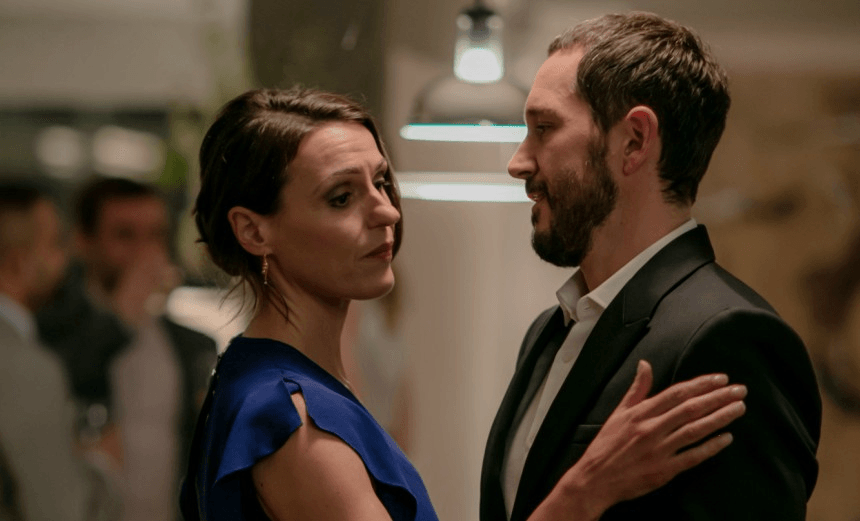The second season of English drama Doctor Foster might be the best thriller on television, despite its everyday subject matter, writes Duncan Greive.
Doctor Foster has headed upstairs from a party and is walking around a house in silence, picking up photos and smelling cosmetics. The stakes are not much higher than her being caught snooping in a home that is not her own. It seems so banal, yet watching I feel nauseous. Doctor Foster might be the most thrilling show on TV right now, despite its entire action being contained in the aftermath of what is, ultimately, the sad yet far from extraordinary breakdown of an English marriage.
The second season started Monday night on TVNZ1, and frustratingly they’re not repeating the bold scheduling of its debut last year, when all five episodes ran over consecutive nights. Frustrating because the end of an episode leaves you breathless, desperate to know the next move of the central character.
When we first met her, Doctor Foster was a brittle example of a particular white British archetype: a success professionally, in marriage, in friendship and as a parent. She’s the kind of person whose every fibre is perfectly ordered, to the point that when chaos consumes her life she is without anchor and thus capable of almost anything.
The first trouble was the arc of season one: she, her architect husband Simon and her teenage son Tom in a leafy village near London. Gradually she first suspects that Simon is having an affair, a situation made all the more awful by the fact he denies so strenuously she winds up doubting her sanity.
Worse, when his relationship with a much younger woman is finally irrefutable, it turns out that many of the couple’s friends not only knew but have spent time with the pair. It speaks to the show’s relentlessly bleak yet plausible worldview that, when he finally assaults her, it has the feel of a perverse victory – she is finally able to reveal to the world the true character she’d had to live with privately.
Season two begins a couple of years later. Simon and his partner, now-wife, have returned to the area. He has a common assault conviction, a young daughter, and an incredible home. His family, forged out of the wreckage of hers, announce their return with a party to which the whole old gang is invited.
Foster herself is two years older, getting on with life but still frozen in stasis. She has strategies to survive, but not to grow. The return, its triumphal nature, cuts her to the quick again – delineating the quandary from which all the show’s most fascinating aspects grow.
“I’m supposed to sit dutifully at home and pretend it’s fine that my friends are celebrating the man that ruined my life,” she says.
This is what we often ask of people after their partners leave them following an affair. Stay out of public life with your grief and your fury. Those who have committed the harm are so much better company, with their stable emotional range and predictable responses to stimuli.
Doctor Foster, the show and the protagonist, asks what happens if you just give in to your impulses. Its genius is in how very close it feels – almost everything which happens is behaviour you have witnessed, felt like, maybe even acted out. Obsessive checking of the phone, attending a party uninvited on a whim, playing with her rival’s vibrator, standing so close that her ex becomes aroused – every move is rational within its context and its relationship to the one prior.
It does all this with a minimum of fuss: the actors are stilted and awkward, as the situation demands; there’s only two or three core locations, like most lives; the dialogue is loaded with hurt and subtext. It’s a marvel, but a very quiet one.
What the show ultimate requires that you wrestle with is why, as a society, we so readily forgive so much incredibly destructive behaviour, mostly by men, when we find the natural responses to it so unbearable. Doctor Foster has no answer to that conundrum – indeed, it resists defining it in binary terms – yet the way it explores this regulation trauma makes it a rare and deeply moving piece of television.
Doctor Foster airs TVNZ1 Mondays at 8.30pm
